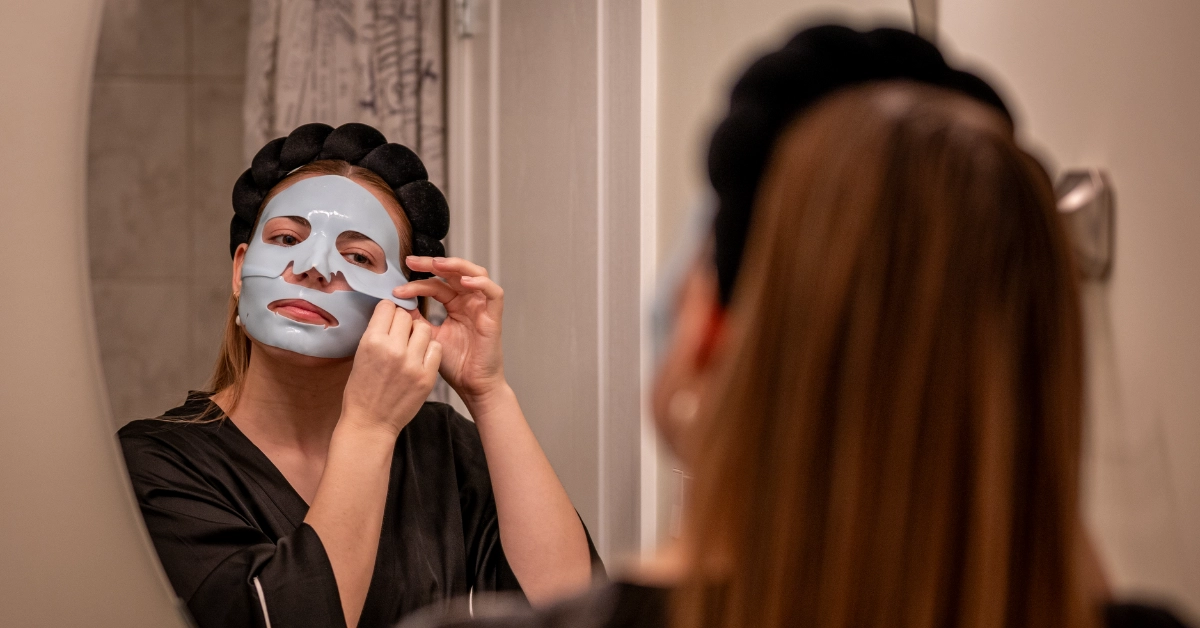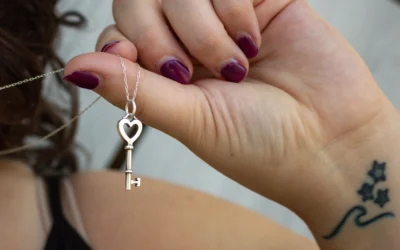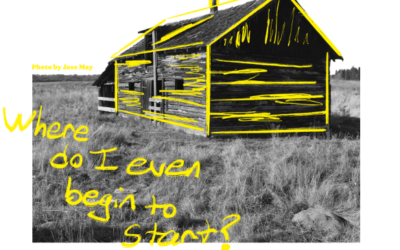I’ve struggled with adult acne for years, and now, I’m telling my story
As a teenager, there’s nothing worse than waking up to see a huge pimple on your face. Except for when you’re not a teenager. As an adult, the self-inflicted torture and anxiety-riddling skin condition of acne is one of the world’s cruelest jokes.
I’ve struggled with acne for nine years, since I was 14 years old. And for all nine years, my self confidence has oscillated between feeling like the most beautiful girl in the world, and feeling like a pimply freak. When my skin was clear, everything was great. But when it broke out in acne, everything was terrible. I couldn’t drink my morning coffee in peace or visit my friends without the embarrassment of my appearance. I couldn’t exercise without worrying about breaking out more from sweating. I couldn’t enjoy a sweet dessert without the panic of developing more whiteheads from the sugar.
Yet, this struggle wasn’t from the actual way I looked, or even the tingling pressure I felt on my face beneath the red, irritated pustules that were moments away from popping. It was from the way society had made me feel about having acne.
As a young adult, I wanted to feel respected as a university student and as a professional entering the workforce, but my acne hindered that for me. It made me feel like a teenager that no one wanted to sit beside, let alone be friends with.
Looking back, I think a lot of these feelings emerged from not really knowing what acne even was, or how to treat it. As humans, I think we often feel that there’s something slightly unsettling about having a condition and not knowing how to deal with it. Almost a sort of helpless feeling.
But I wanted to change that. I was determined to put in the time and research so that I could fix it. Over the years, it’s been quite a journey, but I feel like I’ve learned a lot and have some wisdom to share with others.
So, what really is acne? I’ll tell you what it’s not. It’s not a giant lump that appears after you forget to take your makeup off before bed; a result of taking too many shots on a night out; or, the aftermath of eating an entire pint of ice cream to yourself. These may be temporarily causing some acne, but they don’t create it in the long run.
I’m not a doctor, but I did chat with a skin specialist to see if I was on the right track. The main cause of acne is when the skin produces too much sebum and it gets trapped in dead skin cells, explains laser technician and medical aesthetician, Beth Ouellette. Whether you’re 16 or 35, anyone can develop acne.
“There’s a huge difference between an acne cause and an acne trigger,” Ouellette says. Hormonal imbalances, gut health imbalances, and birth control pills are all common acne causes; but, eating foods like soy and whey protein, taking hair and nail supplements with vitamin B12 or biotin, and having bad hygiene are acne triggers.
On the mental health side of things, acne can lead to anxiety, depression, self-confidence issues, and isolation. I can confidently say this because I’ve struggled with all of these from time to time during my acne journey. For me, a large part of my confidence comes from my physical appearance, so when I get breakouts, it’s easy to just assume that it makes me less attractive. But, why? I’ve never understood why we associate attractiveness with clear skin. And aside from the traditional standards of beauty, why isn’t acne a part of this? According to the Canadian Dermatology Association, acne affects between 20 and 30 per cent of adults who are aged 20 to 40; yet, there’s still an unspoken stigma around it.
“I’m not sure why there still is that stigma,” Ouellette says. “. . .it’s a normal thing to go through.” It’s easy to assume people with visible acne don’t eat a healthy diet, drink enough water, or don’t wash their face . But, this isn’t always the case.
“Just drink more water,” or “just go on accutane” are no longer acceptable phrases.
Another false idea is that drying out your skin will kill the breakouts. I fell victim to this theory in the summer of 2021 when I attempted to cleanse the acne prone areas on my face — around the cheeks and chin — with rubbing alcohol. Thinking back to it now, I get chills over how harmful that was, but no one was there to tell me otherwise.
Ouellette explains that in cases like this, it’s always better to do your research before testing something out. You don’t need to put a bunch of harsh chemicals on your skin in hopes of clearing it up, you just need to know what’s safe and what isn’t. And, with a lot of these quick fixes, Ouellette says that “you’re damaging the skin barrier and causing more trauma to the skin.”
But in all of my deranged attempts to cope with the physical hurdles of adult acne, there was a comfort in knowing that others were going through the same experiences as I was.
Moving forward, Ouellette hopes that people can look past the old ideas of acne and realize that it’s just as common to develop these conditions as an adult. Regardless of age, gender, ethnicity, or lifestyle, “I want them to be fully confident,” she says.
There are a range of treatments and other options for adults struggling with acne who are looking to move past home-based remedies and experiment with clinical treatments. Ouellette explains that chemical peels, laser treatments, and hydrating facials can all help with certain acne conditions. One treatment that worked well for me was the chemical peel. After just one peel, I noticed a big change in my breakouts, and even the appearance of my acne scars had reduced a bit.
“Just drink more water,” or “just go on accutane” are no longer acceptable phrases. It varies for everyone, depending on skin type, products used, and lifestyle.
A great place to start is by developing a gentle skincare routine that works for you. I struggled with breakouts and scarring all through highschool and university, and tried everything under the sun before I threw in the towel. But, it wasn’t until I established a simple routine that my skin started to heal. I’ve used the same steps for the past three years, and it’s held up really well. And not to mention, it’s quickly become one of my favourite forms of self-care.
“I’m not sure why there still is that stigma. It’s a normal thing to go through.”
Beth Ouellette, laser technician and medical aesthetician
It won’t happen overnight, but isn’t it better to start now than keep holding off? It’s a long process with many ups and downs, but it’s taught me to embrace the tedium of healing my skin.
So here are my tips for starting to form habits to deal with your acne:
- Change your pillowcases every one or two days; this can help to stop bacteria from spreading. I change mine every second night, and make sure that I’m always laying on them with a clean face so that no bad bacteria is spread.
- Wash your face in the mornings and evenings before bed. The first thing I do in the morning is face my face with a gentle cleanser and warm water, pat it dry with a soft face cloth, and apply some moisturizer and sunscreen. At night, I first use micellar water to take off my makeup and oils from the day, wash my face again in warm water with the same cleanser as I use in the mornings, and apply some serums before I finish off the routine with some moisturizer. A few of the serums that I find really help me are The Ordinary niacinamide and Hyaluronic Acid products; you can get both of these for under $20 together, and they have worked wonders for my skin.
- Find a cleanser and moisturizer that works for you; just because you saw a $200 facial cleanser on TikTok used by a celebrity doesn’t necessarily mean that it’ll be the best option for you. I tried dozens of different lotions and spent hundreds of dollars before finding out that the one moisturizer that worked for me was actually a drugstore brand priced at only $17. I’ve been using the CeraVe renewing salicylic acid lotion for almost three years now, and it’s saved me money, stress, and uncontrollable breakouts.
For more permanent results, the first step is to find the root cause of the acne. For me, it was a mixture of lifestyle modifications and stressors, but other variables like supplements, climate, and changes in diet can also affect your skin.
It wasn’t until I reached out to a dermatologist that I discovered how much I was overcorrecting when using facial products. The routine was actually causing more breakouts and the products were having the opposite effect that I wanted them to. For others making the same mistakes as I was, it can make all the difference to start from square one and keep it simple. “It doesn’t have to be a 10-step skincare routine,” Ouellette says. “Less is more when it comes to acne. . . and every patient’s skin is so different.”
For those who are just looking for more information, asking a dermatologist is your best bet.
Another common rabbit hole that people get sucked into is following TikTok trends. There’s only a small chance that these will work for you, and it’s a bad habit to get into. Over the past few years, I’ve fallen victim to consumer marketing and impulse buying useless products after seeing celebrities using them. You don’t want to know how many times I’ve purchased a $100 face wash just for it to make my acne worse.
“Just because it’s expensive doesn’t mean it’s going to work better,” Ouellette says. “What might work for someone’s skin type and concern is not necessarily going to work for you.” Sometimes, it’s as simple as sleeping with clean sheets each night, cleansing your face twice a day, and not picking at active pimples — no matter how tempting it can be.
For me, it certainly wasn’t this simple. It took trial and error; testing out new things and cutting out old ones; and, ultimately, learning to listen to my own skin rather than a woman from a TV ad about random products.
“Your skin doesn’t define who you are.”
Beth Ouellette, laser technician and medical aesthetician
Over the years, I wish there had been someone around to give me advice while I was struggling. And when it came to boosting my confidence, there were a few things that stuck with me that worked in the long run.
Build up your resilience. There are two big parts when it comes to dealing with acne: the treatment, and the mindset. Treatments can take years before results are seen, but mindsets can be changed in a day. Stop letting it rule your life, and start with changing your views of having acne; the rest will follow. I know it’s not an easy task — I’m still not perfectly happy with my skin. I often experience those similar ups and downs as I did years ago, but now I’ve learned not to stress about it. The only way I was able to change my mindset was from thinking about how it affected the things I did. It didn’t hinder me from baking or listening to music or watching my favourite movie, so why should it stop me from hanging out with friends or going to the gym?
If you don’t have the advantage of hiding breakouts beneath facial hair, don’t be afraid of cover ups. I found Jane Iredale, a clean, affordable mineral-based makeup brand and used it on an active breakout or any scars every time I left the house and felt insecure about my skin. If it’s in your budget and helps you go out comfortably, “then absolutely go for it,” Ouelette says.
Ouellette adds that it’s important to do your research when finding safe acne products. “I use Maybelline matte poreless [makeup] just because it doesn’t have pore-clogging ingredients,” she adds.
Another lesson I had to learn the hard way was how SPF can affect your skin. Ouellette explains that it’s “so important to wear sunscreen, especially when you have acne.”
When looking for safe sunscreen, lotions with a broad spectrum of SPF 30 or more are great options. Don’t make the same mistake I did by not applying sunscreen and getting violently burnt. As if having a face full of pimples isn’t painful enough, you definitely don’t want to add a stinging sunburn on top of that.
It’s a long process with many ups and downs, but it’s taught me to embrace the tedium of healing my skin.
Using mineral sunscreens can also make a big difference. In my case, I started out by using scented, chemical lotions that contained ingredients which were actually enhancing my acne, pigment, and inflammation. It wasn’t until I found Supergoop’s 100% mineral zinc sunscreen that my active breakouts calmed down.
The final thing I wish someone had told me was that getting a pimple isn’t the end of the world. In fact, it’s not even that big of a deal in the grand scheme of things. I’ll admit that my anxiety spikes anytime I wake up with a breakout before a big work event or a romantic date night. But, “your skin doesn’t define who you are,” Ouellette says. It doesn’t change my personality or abilities. It doesn’t change my sense of style. It doesn’t change the topics my friends and I talk about. And it certainly doesn’t change the way people feel towards me.
Photo by Sam Poier





0 Comments